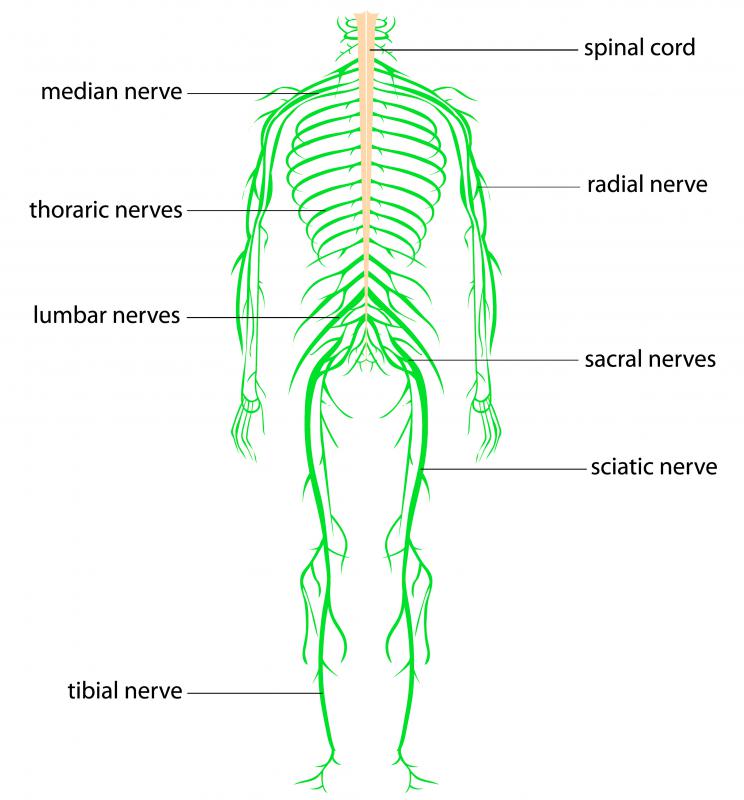At TheHealthBoard, we're committed to delivering accurate, trustworthy information. Our expert-authored content is rigorously fact-checked and sourced from credible authorities. Discover how we uphold the highest standards in providing you with reliable knowledge.
What is the Sympathetic Nervous System?
The human nervous system is a highly complex one, much of which operates without our conscious intervention. The part of the nervous system that functions automatically is called the autonomic nervous system. The sympathetic nervous system is a sub-section of this part, and is responsible for governing functions such as the fight-or-flight response to stress, as well as other forms of energy generation. Its functions are balanced in a complementary way by the parasympathetic nervous system, which controls relaxation after a stressful event.
Other than preparing the body to cope with emergencies, the sympathetic nervous system serves other vital purposes. For example, standing up after being in a sitting position for a long time must be accompanied with increased blood pressure, or a person can go unconscious. Most people have either experienced or observed lightheadedness when standing suddenly. Without the proper functioning of the sympathetic nervous system, effects like these would be greatly magnified. This system also prepares the body for waking and action after a sleep cycle, as well as increasing heart rate and perspiration during exercise.

The parasympathetic nervous system can be seen as performing many of the same functions, but in reverse when that is what is most appropriate. Thus it is that these two systems are not in opposition to one another, but rather work to modulate the ways in which the other vital systems of the body perform. In effect, they observe moment-to-moment changes in environment and mindset, and work to keep the body in a constant and stable condition, which is referred to as homeostasis.

The nerves and other structures which make up the sympathetic nervous system originate in the thoracic vertebrae of the spine. From this beginning point in the spinal cord, neurons gradually branch out to all the major systems and organs of the body. Disorders of this system are rare, but many are characterized by overactivity of the system.
One such disease, known as reflex sympathetic dystrophy syndrome (RSDS), typically causes intense regional pain and burning sensations in the body, especially in the extremities. Other symptoms mimic what would otherwise be the natural operations of the sympathetic nervous system, such as limbs being warm to the touch, sweating excessively, and heightened sensitivity to heat and cold. Due in part to its rarity, the causes of RSDS are not fully understood, although it has been associated with some forms of nerve injury.
AS FEATURED ON:
AS FEATURED ON:

















Discussion Comments
I think that the sympathetic nervous system is one example of how strong the human intuition and instinct can be. While things like instinct are scientifically not exactly related to the sympathetic nervous system, I think that they are connected, and they are all ways in which the human subconscious can tell us things,and I think people have become less able to use these things.
Fight or flight response is so fascinating. I find it really amazing that your sympathetic nervous system receptors, and thus your whole body, can know that you are in danger almost before you do.
Post your comments